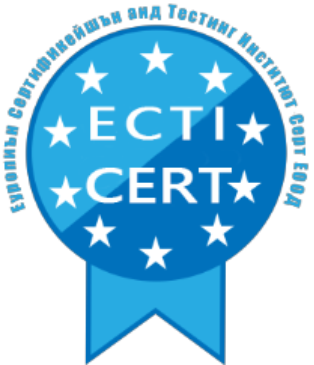Conformity assessment of machinery Directive 2006/42/EC stands at the basis of the European legislation for regulating the Machinery sector in the Mechanical Engineering industry. It provides for the legislation to harmonize the significant health and safety requirements concerning machinery for the entire European Union. The main requirement for machinery allowing for its distribution on the single European market is that the machinery must meet the Directive’s requirements. The participation of a third independent party – a notified body, is required when the machinery falls within the scope of Annex IV of the Directive. What does the ECTI service include?
ECTI is a notified body with identification number NB 2853 of the Register of the European Committee for Directive 2006/42/EC Machinery, and has been authorized by the State Agency for Metrological and Technical Surveillance (SAMTS). It performs conformity assessment of machinery within the scope of Annex IV of the Directive under the “EC-type examination” procedure.
Machinery within the scope of Annex IV for which ECTI provides conformity assessment services – „List of machinery scope in accordance with Annex No. 2 of the Ordinance on Essential Requirements and Conformity Assessment of Machinery (OERCAM) for which NB ECTI provides conformity assessment services”.
Concerning the machinery that falls outside the scope of Annex IV of the Directive ECTI offers voluntary certification. It concludes with the issue of a Trade Certificate. The manufacturer submits an „Application for voluntary certification of machinery” and is aware and accepts„ ECTI Regulation on performing voluntary certification”.
The Trade Certificate in a voluntary scope is not mandatory but creates a basis for greater trust in the product and provides a significant competitive advantage to the manufacturer.

